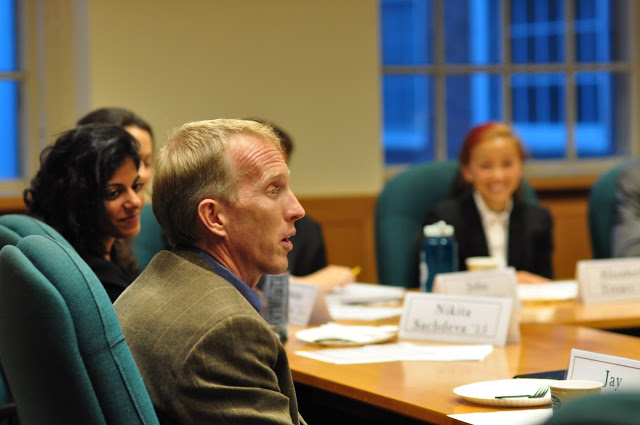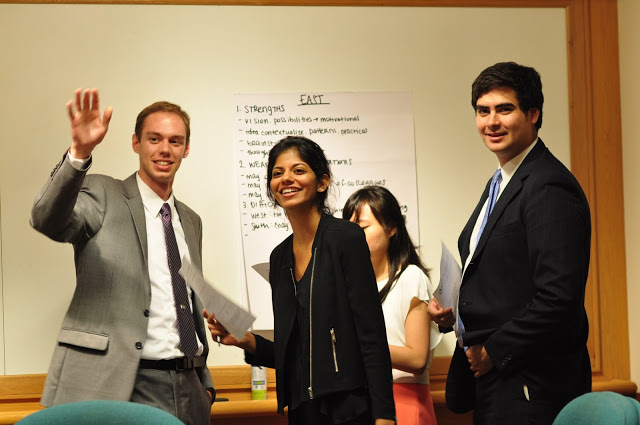- Public Policy
- Leadership
- Funding
- News & Events
- About the Center
Back to Top Nav
Back to Top Nav
Back to Top Nav
Back to Top Nav
This ongoing series explores sessions of the Rockefeller Leadership Fellows (RLF) program. RLF provides fellows with resources in leadership theories and practical skills. Selected their Junior Spring, these Seniors take part in the workshops, dinner discussions, and team-building exercises as they gain a better understanding of the qualities and responsibilities necessary for leaders and successful leadership styles. Throughout the program, fellows learn from the insight and experience of distinguished guests as well as from each other.
 |
| Jay Davis '90 begins RLF's 2014-2015 program with a discussion on leadership styles. Photo by Malika Khurana '15. |
Jay Davis '90 kicked off RLF’s 2014-2015 program with a focus on individual leadership styles. Davis, the coordinator of the First Year Student Enrichment Program, Summer Enrichment at Dartmouth, and several other Tucker Center outreach programs, gave us a directive to recognize and adapt to the behavior and personality styles of those we are leading. In asking us to recount our own experiences with leadership conflict, he opened a reflective process that would culminate with the conclusion that bad leadership from good people can prevent a team from working to its full potential. Of course, even with this reflection, we will make mistakes. As Davis emphasized, "Good decisions come from wisdom. Wisdom comes from bad decisions." Nevertheless, an awareness of potential failings ahead of time may serve to streamline the reflective process that turns poor decisions into wisdom. Our discussion of leadership raised this awareness.
 |
| Fellows learn from Jay Davis '90 that "Good decisions come from wisdom. Wisdom comes from bad decisions." Photo by Malika Khurana '15. |
In order to further solidify, if reduce, styles of leadership for discussion, Davis introduced his compass rose personality activity. The model uses North, South, East, and West as placeholders for a variety of personality traits, splitting people into actors, supporters, thinkers, and planners respectively. The fellows divided into each of the four categories and then considered the leadership setbacks to their personality styles, which personality styles might conflict with their own, which might work well, and the types of situations in which those expectations may be proven wrong. This was not, however, an activity to divide. Instead, it was a lesson in getting to know your followers and adapting your leadership to best complement their personalities. In other words, a significant part of leadership is facilitating the styles of your followers to promote strong outcomes.
-Written by John Howard '15, 2014-2015 Rockefeller Leadership Fellow